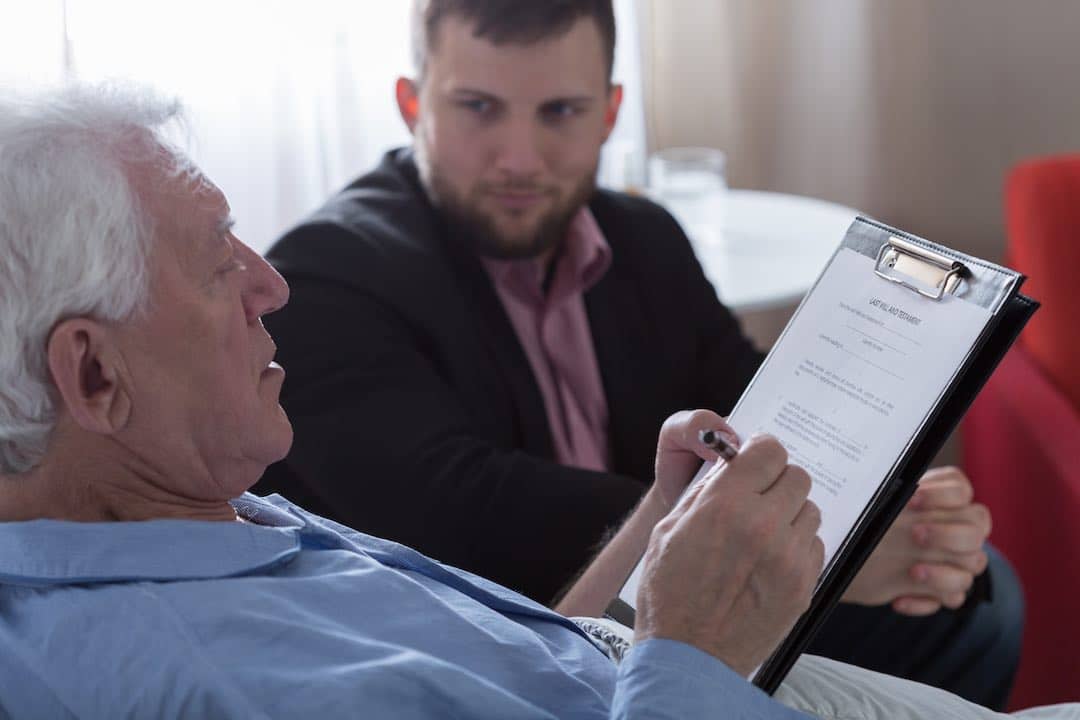Warning: Undefined array key 1 in /var/www/wp-content/plugins/monarch/monarch.php on line 4359
(the author has chosen to remain anonymous)
When you encounter the crazy person on the street corner, ranting and raving, you don’t engage in conversation, you simply walk across to the other side of the street or at the very least maintain a healthy distance. But what happens when that raging, unhinged addict is a member of your family? What do you do? How do you cope? What’s the next step to take after it seems you’ve done everything? Does there finally come a time when estrangement may be the healthiest choice you can make for yourself?
Learning To Cope
By the age of five or six, I learned the survival strategy of estrangement. I’d retreat to the attic to play by myself. I’d lay on the grass in our tiny backyard, absorbing the warm rays of the summer sun, listening to what is now known as bubble gum music. It still makes me happy, raises my vibration. That’s what frequencies do—they have the power to bring us up or down. When happy you feel light-hearted. Grief feels dense. Shame constricting.
Depression results as a lack of connection. Forced to live with a dark, dense energy I learned to retreat in order to hold my own frequency. But when I couldn’t escape, when I had to participate, I learned to armor up. Shut down. Nothing comes in, nothing comes out. There was no one to model or teach me a healthy way to stay in my power, so I did the best I could. I discovered a variety of coping mechanisms. I escaped. Escape was my favorite method to take care of myself. Not through drugs, alcohol, eating or shopping, but literally, escaping—finding a place to retreat where I could enjoy those peaceful-easy feelings deep down inside of me.
What Is Family Estrangement?
According to Wikipedia,
New Kid On The Block
With estrangement, there normally is one person that is the central problem. For me, it was my brother. For as long as I can remember my mom would ask, “why can’t you kids just get along?” Because he’s cheating! Because he’s lying! Because he’s always breaking the rules and something inside of me doesn’t allow me to do any of those things. First at school, then with the neighbors, then the police. For as long as I can remember, my brother was always getting in trouble. The crazy thing was, it was never his fault. There was always a reason why he wasn’t responsible for what happened.
I often felt sorry for him. Though he often tormented me, my parents saw it as sibling rivalry, forever reiterating the phrase, “why can’t you kids just get along?” I tried. All my life I tried. I remember an incident in 2nd grade, the first time in many that my parents would be called to school.
The nun totally lost control and cracked her 12” ruler across her desk breaking it in half! Then she threw the fragment across the classroom at my little brother, who was sitting in the very last row. Fortunately, no one was hurt. Unfortunately, she is the one who got in trouble for this incident, and this is when my brother learned one of his foundational life lessons–how to project your crimes on another and get away with it.
At a very young age, I had the wherewithal to estrange myself from him. He was never to blame for anything that happened. He was just bored because he was so smart. Actually, there’s some truth in that, but my mom blamed herself for holding him back a year since he was a December baby. My dad, on the other hand, was a strict disciplinarian who knew no other way to deal with insubordination. By high school, he would threaten military school for my brother, forced estrangement.
By this time my sister had joined our family. Eight years younger than me, she was the light of our family. Through her, I began to remember what it felt like to connect with another. I loved being with this one, her presence was just pure joy. When she turned 18 she moved across the country. Her life there was so peaceful and beautiful. I soon followed. So did he.
In time, my sister and I had children of our own. Having grown up with my brother, I never imagined how much joy a little boy could bring into my life. Mothers love unconditionally. What a blessing that is! Now I understood why my mother could adore someone who caused so much pain for everyone else. I remember seeing a movie where a mom hugged her son on death row just before he would be executed.
A mother’s love knows no limits, which is why I said what I did just a few months before she passed away, just weeks before he would implement his long term strategy to take control of everything. I told her I understood that she would, of course, love him no matter what, but please, please don’t trust him.
Later Years
As an adult, I quickly learned that caffeine helped bolster my exterior. Alcohol helped me numb all that input. I found lots of ways to protect myself, mostly healthy. Another method that worked for me was shutting down. The problem was, I did this by completely shutting down. I could live vicariously through my always exuberant best friends, but I personally, felt little to nothing…estrangement from self.
As adults we get better and better at hiding those traits others find offensive, but for those who are mentally ill, they can only cover it for so long, so it wasn’t until my mom got really sick and my sister and I were forced to live with our brother for a week or more that we began to see just how messed up he was. The drugs were just a part of it. They were AA approved after all; however, he dosed himself as needed–never one to follow directions. Substance abuse and impulsive spending were also on the list, check, check, check.
My mom never once in her life hired help. She was the one who gave and gave, selflessly, until she couldn’t anymore. Even after her first round with cancer, at nearly 70 years old, she went back to work. After all, she never knew when her son might need a few thousand again. To be fair, my parents were always there for each of us should we ever need anything. They were extremely fair. My mom went over her final wishes with me many times. Like so many elders, she hoped to be able to die at home, she wanted to be sure my father would be cared for —obviously he didn’t want to have to go to a home, though his memory issues became of greater concern as the stress related to his wife’s illness increased
Finally, above all else, my parents wanted their life savings to be divided equally between their children. Fearing that my dad might reverse mortgage the home or worse, she decided to put the home into an irrevocable trust—the kind once set in place, not even she could alter. My dad, having little experience managing finances, asked me to continue helping in this area. With an irrevocable trust in place, everyone would be safe.
But it wasn’t. She found a way. Without realizing it, she gave all her power away. Not even her trust attorney and a $5000 bulletproof irrevocable trust could protect her assets from the deviously brilliant mind who felt entitled to take it all. Even an attorney specializing in estate planning and elder law didn’t see it coming.
20 Traits of a Psychopath
- pathological lying
- glib and superficial charm
- grandiose sense of self
- need for stimulation
- cunning and manipulative
- lack of remorse or guilt
- shallow emotional response
- callousness and lack of empathy
- parasitic lifestyle
- poor behavioral controls
- sexual promiscuity
- early behavior problems
- lack of realistic long-term goals
- impulsivity
- irresponsibility
- failure to accept responsibility
- many short-term marital relationships
- juvenile delinquency
- revocation of conditional release
- criminal versatility
The Long Con
Such high-level intelligence without a moral compass is a dangerous combination. It’s challenging to stay ahead of a criminal mindset. You may think you’ve outwitted them this time, only to find their level of retaliation is far and beyond anything you would have imagined. This is not a game for amateurs. It is a game to them; sociopaths love to play because there are no rules for them. Getting away with breaking the rules only makes them feel more superior. Everyone else is just stupid. Even when a local detective noticed holes in his story there wasn’t enough evidence to convict him of anything. Legally, he broke all kinds of elder abuse laws but no one could prove it. Maybe in court. No guarantees.
Shortly after learning that his mother’s tumor was a highly aggressive one with a low survival rate, he began to rent out his Hollywood apartment on the weekends. He would go so far as to take the train, which he despised, just to be with his parents. He’d been in multiple accidents and lost his license to drive. My mom was actually proud of him when he used her cancer as an excuse to pay fewer fines and get his license back later so he could take care of her. No doubt she also felt relieved that she wouldn’t have to pay for his train tickets anymore.
The estranged son had returned to make amends — to make his dad believe he had forgiven him for what happened so many years before. My dad carried so much regret and blamed himself for how dysfunctional his son had become in his adult years. He didn’t even know the extent of it, how many tens of thousands of dollars had been directed to keep my brother out of jail, to keep his phone turned on, or in reality, all the room service in New York and the housekeeper he paid for 20 years to keep his bachelor pad looking good.
“Even though he isolated them, drugged them and stole all they had, racking up major credit card debt he would transfer then walk away from, no one could stop him from the abuse he inflicted on his own parents.”
The medical co-pays for my mom alone were astronomical, but good thing he was there to fill out all those financial aid forms. Bless her heart, she thought he was just being helpful. Making sure my dad would have some savings to live on. Other than that, they only had the house, paid in full which would be divided between the three children after my dad no longer needed it.
Data mining, that’s what he was up to—figuring out just how much he could count on after his mother passed away. It wouldn’t be long. He knew from the time of the biopsy. He knew long before my mom did that this kind of tumor would be terminal. He was already shopping for the $96,000 BMW he would buy weeks after she died. The reason for the new car? He couldn’t bear the memory of my mom he was forced to experience when driving my dad to his doctor’s appointments in their Toyota sedan.
At least that’s what he told his uncle.
Even though he isolated them, drugged them and stole all they had, racking up major credit card debt he would transfer then walk away from, no one could stop him from the abuse he inflicted on his own parents. Now that our mother was dying he could also play the victim card, further enhancing his position by telling everyone he’s all the more distraught because his sisters only cared about the money.
Because I had sat down with my mom and dad’s medical insurance advisor months prior, voicing my opposition to switching my dad’s plan, my brother used this opportunity to say to my dad, “She doesn’t care about you—she only cares about the money.” I’d heard this about 100 times by now, so no surprise there, but then he said right to my dad’s face, “She said you’re just depressed and hunched over, ready to die!” And he said it with such conviction anyone would think it was true.
I wouldn’t repeat those words to my dad even if someone had said it, knowing the thought of this would cause him so much pain. I nearly leapt across the bed where my mom was now half asleep, except I knew he’d have the police there on speed dial to arrest me. Never in my life did I want to physically take down another person like I did in that moment, seeing the sadness on my dad’s face, my mom now too drugged out to know what was happening. Still hoping “the kids” could get along.
Yet, when mom and dad weren’t around, his attitude shifted dramatically. “I f#@*ing hate him,” he said with all the vengeance of the teenager who believed he was unjustly punished. He said this while taking care of my dad, while my mom was stashed away eating raw food and learning to meditate, just four months before she died. All part of the plan. He wouldn’t take no for an answer so finally she agreed to go to the retreat center, not so much because she believed it would save her, but to make him happy…or maybe so he would just leave her alone.
On the surface, sending her to a healing center looks noble, right? Moving her to UCLA where they would be able to save her life looks noble on the surface, right? Taking care of your dad so your sisters could be free to care for their families looks noble, right?
This is precisely why it’s so hard to bust a sociopath.
The Passing
Just months after my mother passed away, the trustee, who is the only person capable of this, moved the deed to the house out of the bullet- proof trust. My dad knew little to nothing of the truth since he signed his life away just a few weeks after his wife of 54 years died alone, in a factory hospital far from home. Since my brother had isolated my dad, then put him on anti-depressants, and who knows what else, he was all too easy to manipulate.
Adult Protection Services couldn’t help either because he quickly began to control that narrative too. Legally, he knew all the loopholes. He’d successfully sued many who were actually the victims of his projections, and won.
It would take a novel to go into detail about what happened during the last year of my mom’s life. All the ways he managed to play everyone. He orchestrated a major con, even trying to pin the crime on me. The grief of losing my parents is just one part of the long term pain and the suffering he created for all of us. Time itself does not heal all wounds. I’ve survived losses, but this kind of mental torture with all of its loose ends and lack of any real closure, I’m not sure there is any therapy to fully heal this. Honestly, it’s hard to imagine worse, losing both parents and family as I’ve known it for as long as I can remember, all in a very short time. Losing our inheritance doesn’t come close.
In the end, the prodigal son got everything he wanted. My parents didn’t get a single item on their wish list. My parents did the best they could to protect their life savings but in the end, their son smoothly walked off with all of it. Should I have fought harder for what was so clearly right? Would I have been better off to step away long before? I’d been warned. I’d been counseled. Early on, a therapist told me my parents would never believe just how sick their son was and the only way to take care of myself was to disconnect, but unlike any other relationship, keeping a healthy distance gets complicated when that person is someone in your family and your parent’s well-being is at stake.
It doesn’t get any more complicated when it comes to family dynamics than this. Surely, it must be rare? Not given all the stories my sister and I heard after the trauma. Over the next few months, I talked to so many who had experienced similar situations. It’s actually quite common. It’s a complicated decision, family estrangement or ongoing trauma so severe it creates PTSD. Either way, if not cared for, the wounds can create further separation, even from those you want to be closer to.
Family Estrangement Facts
Healing The Deep Wounds of Family Estrangement
No matter how awful the person, family estrangement, from parents or siblings, is one of the most painful and complicated forms of estrangement. Because it’s so multi-faceted, the healing process needs to address the emotional body as well as the challenges the mind is facing.
Physically, a lot can be stored — all that tension and fear will land somewhere in the body, creating knots in your neck, indigestion, and worse, if left unchecked. What about your spirit? If you’ve lost your sense of light-heartedness or joy you can bet your spirit is suffering as well.
The painful emotions of family estrangement are not ones you want to bury because quick fixes like denial can lead to addictions, health issues and more estrangement.
The healing process is not a solo journey; this path requires experienced guides who are capable of restoring wholeness to your fractured being. Just like a body part with multiple fractures, this healing process takes time and expertise.
Below is a list of various ways to restore a sense of well-being:
- Journaling to get the perpetual thought loops out of your head. Also, writing a letter(s) stating everything you’d like to say to each person if you could
- Music that nourishes your soul, instills a sense of peace or makes you happy
- Therapists–provide witnessing, confirmation and reframing
- Experts: “The Work” by Byron Katie has helped thousands of people let go of their debilitating story
- Energy Work/Healers: EFT–Emotional Freedom Technique; The Emotion Code–releasing heart walls; Ho’oponopono — a forgiveness process (Joe Vitale explains this ancient Hawaiian practice on YouTube); Energy medicine–homeopathics and healers; Body work as in various forms of massage therapy including myofascial work
- Hospice counseling when someone has passed away or is about to
- Movement of any kind, for example, yoga, walking in nature, kickboxing
- Nature–a wonderful way to connect with the beauty in life
- Cleanse/detox to clear the physical debris of the past
- Grounding–simply laying belly down on the ground until you can breathe deeply again. This is a very effective and affordable way to manage anxiety and replenish naturally
- Meditation and visualization
- Connect with friends— precious connections who will remind you to live fully again
- Patience with your process.
The healing process takes time and a whole lot of energy, which is why patience is so critical. You’ll need to pace yourself. When you have the energy, clear some more with a professional so you aren’t simply repeating the trauma. Then, remember to add in joy and play and connecting with the loving people in your life. Your inner guidance will prompt you when it’s time to do more clearing.
Over time, you will find yourself feeling lighter, freer, and stronger than ever before. Don’t be disappointed in yourself if more layers surface. They will. This is especially true if recent traumatic events have re-stimulated you, triggering wounds from childhood. The deeper the wound, the greater the potential for empowerment.
Seek out sources of inspiration and hope, which is also essential to healing. In his recent book, Becoming Supernatural, Joe Dispenza tells a fascinating story of personal trauma which led to horrible physical symptoms that couldn’t be healed…until the emotions were cleared and within the healing process, the “victim” learned just how powerful she was in co-creating her diseases and her restoration process.
Finally, be open to receive whatever form of healing shows up in your process. If you have the desire to release the struggles, answers will be provided.
Inspiration is everywhere.
“Behind every problem, there is a question trying to ask itself… Behind every question there is an answer trying to reveal itself. Behind every answer there is an action trying to take place. And behind every action there is a way of life trying to be born.”
~ Michael Beckwith
I’m a self-professed madman, adventurer, photographer, certified High-Performance Coach, martial artist, and licensed physical trainer specializing in senior fitness. My passion is to continue growing and developing into my own unique, gifted, and joyful authenticity, while committing myself towards doing my own special part to help change the world. My mission is to help others find their own direction and purpose in life, by means of mentoring, teaching, and empowering.











